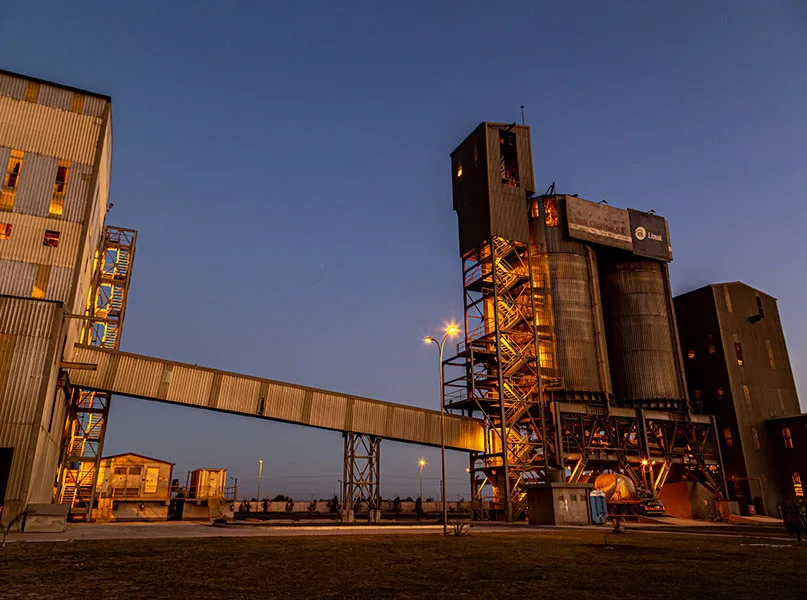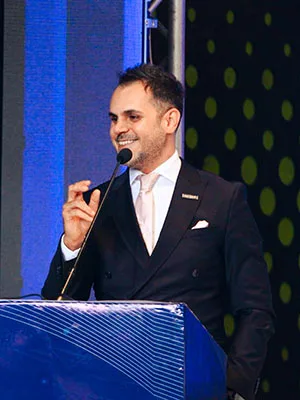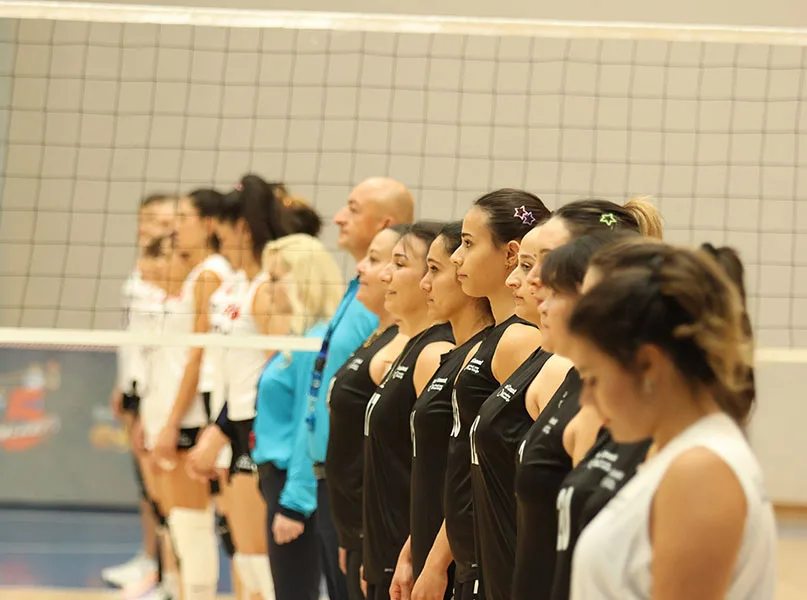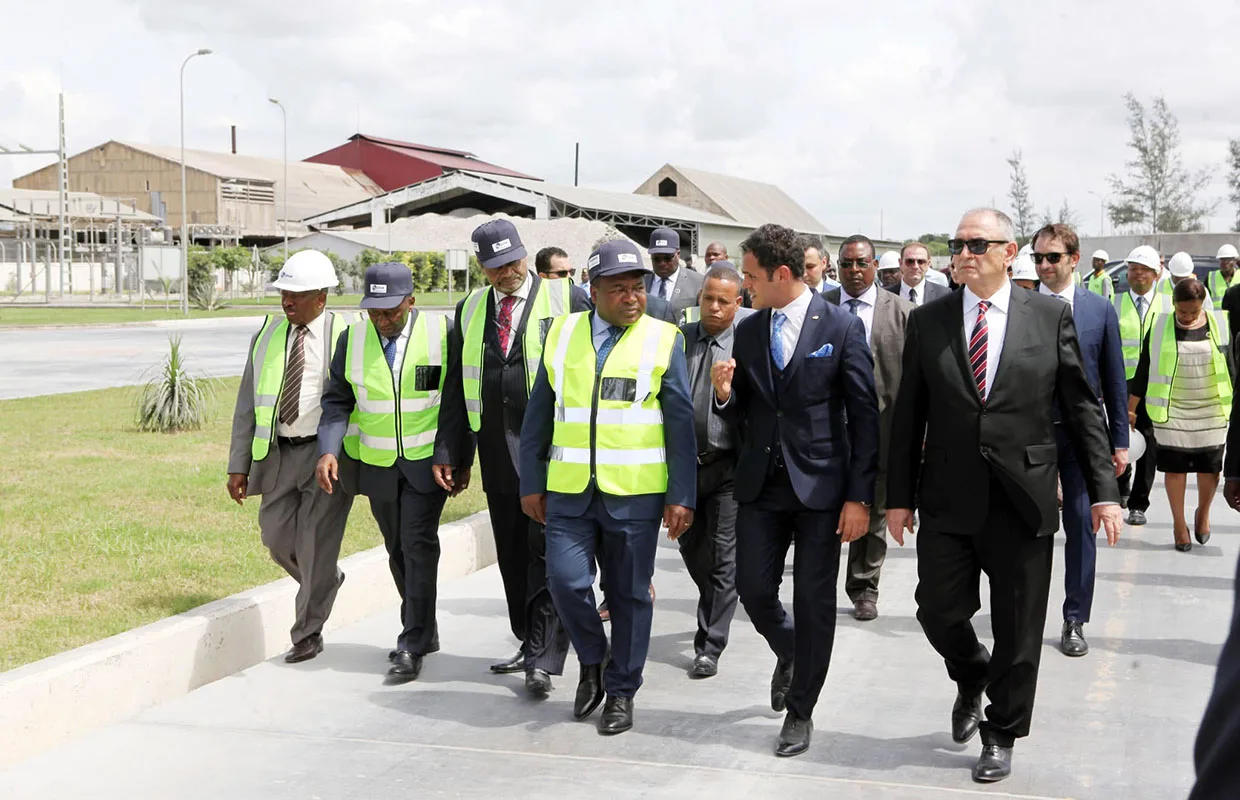Breaking industrial ground every day by developing sustainable and digitalised processes, Limak Cimentos SA is leading the way in the future of manufacturing. Seyit Baydar, General Manager, tells us more about the company’s commitment to a better tomorrow.
MANUFACTURING A SUSTAINABLE AND DIGITAL FUTURE
“Manufacturing is a dynamic and fascinating space that is inherently complex, involving countless inputs and outputs, and playing a central role in any economy. It’s also a space of continuous learning, with evolving technologies, shifting regulations, and constant innovation.”
This excitement about the continual developments and evolution of the manufacturing sector, as narrated by Seyit Baydar, General Manager of Limak Cimentos SA (Limak Cement), not only showcases his mindset but also the passion of the company as a whole.
Limak Cement began operations a decade ago following investment by its board of directors, with the construction and assembly of its plant completed by 2016. It has been fully operational in Maputo, the capital of Mozambique, ever since.
“We are proud to operate with the highest product quality standards that are aligned with international health, safety, and environmental (HSE) regulations. One of our greatest achievements is the knowledge transfer to local talent, especially in engineering,” details Baydar.
Specifically, whilst the law allows eight to 10 percent of the company’s workforce to be expatriates, 96 percent of its staff are Mozambican – a factor Limak Cement prides itself on.
Baydar got his start in the industry through acquiring a degree in economics, allowing him to gain a strong understanding of how economies function and people’s well-being can be improved.
“It’s clear to me that industry is the main engine of growth and development. Without a solid local manufacturing base, any country risks becoming dependent on others. That realisation sparked my interest in building a career in the sector,” he expands.
Currently, Baydar is not only Limak Cement’s representative in the nation, but also serves on the Executive Board of the Industrial Association of Mozambique (AIMO) and as Vice President of the construction materials sector at the Confederation of Economic Associations of Mozambique (CTA).
Through these roles, he brings his international expertise to Mozambique’s industrial and business landscape, supporting the country’s sustainable development.

A COMMITMENT TO EXCELLENCE
What serves to differentiate Limak Cement from the competition is its relentless commitment to quality in its products and services. The company operates in five countries, actively applying its global experience in Mozambique, from organisational structures to decision-making processes.
“We rely on collaborative committees to make decisions regarding both product and service, which fosters a horizontal management approach. This culture encourages diverse perspectives, speeds up innovation, and leads to stronger results,” insights Baydar.
“When that kind of mindset is embedded in the organisation, success follows naturally.”
Additionally, Limak Cement prioritises upholding its leading position in the industry through advanced technology and sustainability-focused projects. As a group, the company is fully committed to the UN’s Sustainable Development Goals (SDGs), constantly monitoring environmental and health indicators and taking corrective action where needed.
Limak Cement’s operations are, therefore, designed to be efficient, safe, and environmentally responsible.
“Considering a group-wide approach, we combine advanced technology and sustainability-driven strategies to lead our industry towards a low-carbon future,” he informs us.
“Through end-to-end digital interpretation – from operational technology (OT) systems to enterprise resource planning (ERP) – we ensure data accuracy, optimise processes with robotic process automation (RPA), business process management (BPM), and low-code platforms, and enhance efficiency from production to logistics, reducing energy use and carbon emissions.”
Aligned with its sustainability vision, Limak Cement focuses on energy efficiency, resource optimisation, alternative fuels, renewable energy, and innovative solutions such as carbon capture, utilisation, and storage (CCUS), and green hydrogen for its net zero journey. The company’s commitment is reinforced through continuous improvements in the CDP (formerly the Carbon Disclosure Project), engagement with global sustainability indicators like environmental, social, and governance (ESG) ratings, and alignment with the Science Based Targets initiative (SBTi), which aims to limit global warming to 1.5 degrees Celsius (°C).
“This integrated approach allows us to minimise environmental impacts, create social value, and strengthen our position as a transparent, future-focused industry leader,” dictates Baydar.

ACCELERATING TOWARDS THE FUTURE
With energy supply being one of the main challenges in Mozambique, Limak Cimentos installed a 4.8 megawatt (MW) natural gas power generation unit in 2022 – a game-changer not only for the sector but for industrial operations throughout the country.
“Energy security is a top priority for our region, and natural gas is considered one of the cleaner energy sources available. With this in mind, we implemented our own natural gas power plant, which has significantly reduced our dependency on the national grid, ensuring consistent energy supply and lower operating costs,” explains Baydar.
Moreover, Limak Cimentos is exploring innovative ways to reuse gas by-products. For example, it is installing a pipe system to direct the heat generated from the plant’s chimneys to its main mill, which will increase production efficiency by raising the mill’s temperature.
Alongside the natural gas power generation project, the company is driving a series of strategic initiatives aimed at reducing its dependence on fossil fuels in its cement kilns and accelerating its transition to a low-carbon future.
“We have significantly diversified our energy portfolio in favour of alternative fuels, including refuse-derived fuels, end-of-life tyres, industrial waste streams, and biomass and municipal solid waste-based resources, ultimately supporting our emission reduction goals and the principles of a circular economy,” he furthers.
In 2024, Limak Cement began the investment process in its several cement plants for a 36MW solar power plant to be commissioned this year, marking a major milestone in its sustainable energy transformation.
Equally, the company plans to begin using green hydrogen in its facilities by 2027, a step that will help decarbonise high-temperature industrial processes, in addition to deploying CCUS technologies at an industrial scale by 2037.
“Together, these initiatives represent critical steps in our long-term sustainability strategy, reinforcing our leadership in the sector and supporting global efforts to combat climate change,” asserts Baydar.

DEDICATED TO THE WORLD OF TOMORROW
Limak Cement is aligned with the global shift towards digitalisation and sustainable industrial development and is investing in digital tools to enhance efficiency, traceability, and real-time decision-making. On the sustainability front, the company is fully committed to reducing its carbon footprint, conserving resources, and minimising waste.
“We view sustainability not merely as an environmental responsibility, but as an integral part of our strategic growth journey,” prides Baydar.
Guided by its science-based decarbonisation roadmap, a people-centred and inclusive corporate culture, data-driven governance, and a responsible value chain approach, Limak Cement is reshaping its processes with a focus on long-term impact.
Specifically, the company channels its R&D and innovation capacity into developing sustainable products and services whilst fostering fair, safe, and inclusive workplaces and maintaining transparent, accountable relationships with its stakeholders.
“From energy efficiency to the circular economy, from gender equality to business ethics, our strategic priorities reflect our commitment to building not only today’s business landscape but also the world of tomorrow,” details Baydar.
“In line with our vision of building a sustainable future, we place the fight against climate change at the core of all our operations, pursuing a comprehensive decarbonisation strategy that spans raw material and fuel optimisation, energy efficiency improvements, and the adoption of CCUS technologies.”
Equally, Limak Cement is taking steps towards its goal of becoming a multinational corporation, growing together with its stakeholders.
“We believe that long-term success comes from growing alongside our stakeholders – not apart from them. This means involving local communities, working transparently with partners, and ensuring our practices are inclusive and sustainable,” he continues.
The company’s ambition to expand into new markets is guided by the same values that drive its current operations – integrity, innovation, and responsibility. It aims to build a multinational identity whilst preserving its human-centred approach and supporting the economic development of the regions where it operates.
Limak Cement places strong, inclusive, and systemic stakeholder management at the very centre of its sustainability strategy across all areas of operations. Integrated with its corporate sustainability goals, the Limak Cement Stakeholder Engagement Plan (SEP) has been designed to apply to all of the company’s production plants and operational units.
“This ensures that as we advance towards becoming a multinational corporation, we grow together with our stakeholders in a way that’s responsible, sustainable, and aligned with global best practices,” confidently concludes Baydar.
Editor’s note: Many of the business leaders featured by Africa Outlook continue sharing their insights on LinkedIn. For executives across Africa seeking to strengthen their online presence, visit LinkedIn for C-suite Execs.























